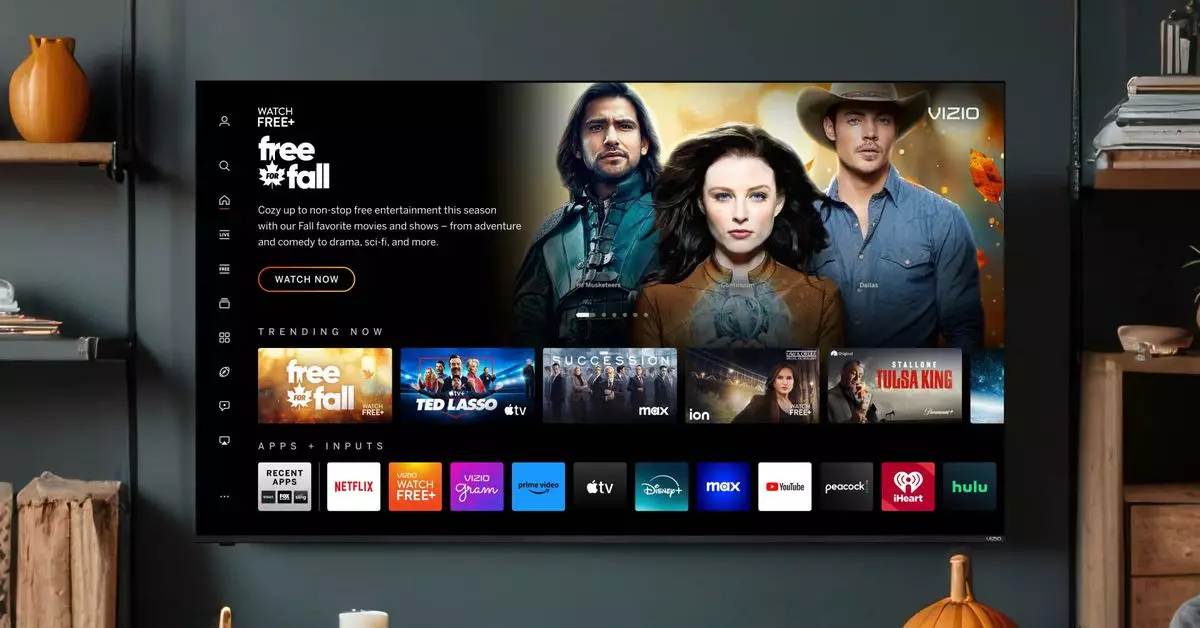In a significant move that marks a pivotal moment in the retail and advertising landscape, Walmart has officially acquired Vizio for a hefty sum of $2.3 billion. This acquisition, first announced in February, officially closed recently, positioning Walmart to leverage Vizio’s advertising platform, Platform Plus. This strategy aims to enhance Walmart’s advertising capabilities and tap into the wealth of data that Vizio possesses, an asset that is increasingly critical in today’s data-driven market.
Walmart’s interest in Vizio extends beyond mere ownership; it reflects a broader strategy to amplify its advertising business. Platform Plus, which encompasses Vizio’s advertising and data operations, is reportedly the source of all of Vizio’s gross profit. This integration promises to provide Walmart with sophisticated data analytics that can inform more targeted advertising campaigns. By utilizing consumer data to tailor ads on popular streaming platforms like Disney Plus and Hulu, Walmart is positioning itself as a major player in the advertising ecosystem, potentially enhancing its revenues significantly.
Privacy Concerns on the Horizon
However, not all news about this acquisition is positive. The deal raises several privacy concerns, particularly given Vizio’s troubled past with data tracking. The company previously faced legal challenges regarding its collection of viewer data without consent, resulting in a settlement with the Federal Trade Commission in 2017. With Walmart now at the helm, there’s an urgent need to address these privacy issues and restore consumer trust. Ensuring compliance with data protection regulations will be vital for Walmart as they navigate this transition.
The acquisition also places Walmart in direct competition with other players in the advertising space, particularly budget-friendly brands like Roku, which has established itself as a formidable competitor in the TV market. Roku generated substantial revenue from advertising in the third quarter of 2024, indicating that Walmart will need a strong leveraging strategy to compete effectively. Vizio, while historically less profitable per user, now has the backing of one of the largest retail giants, potentially allowing it to scale its advertising revenue and customer reach more effectively.
Operational Independence and Future Prospects
Despite Walmart’s acquisition, both companies are expected to continue operating independently for the foreseeable future, with Vizio’s CEO William Wang retaining his position. This operational independence may allow Vizio to maintain its unique brand identity and business practices while benefiting from Walmart’s resources and market muscle. Walmart’s executive vice president, Seth Dallaire, acknowledged Vizio’s adeptness in adapting its business model, particularly in scaling its advertising efforts.
The Next Steps in the Journey
As Walmart and Vizio move forward, the focus will likely shift toward integrating their respective strengths while ensuring ethical data practices. The retail giant’s entry into the advertising sector through this acquisition could reshape the competitive landscape, driving innovation and efficiency. However, they must tread carefully, balancing their business aspirations with the imperative of upholding consumer privacy and trust in a rapidly evolving digital marketplace. This acquisition marks just the beginning of an intriguing chapter in the intersection of retail and advertising, with the potential to redefine how companies leverage data in their marketing strategies.

